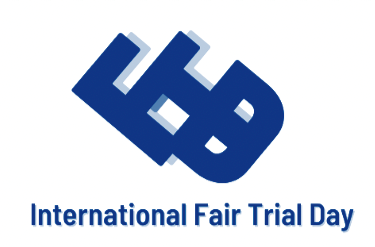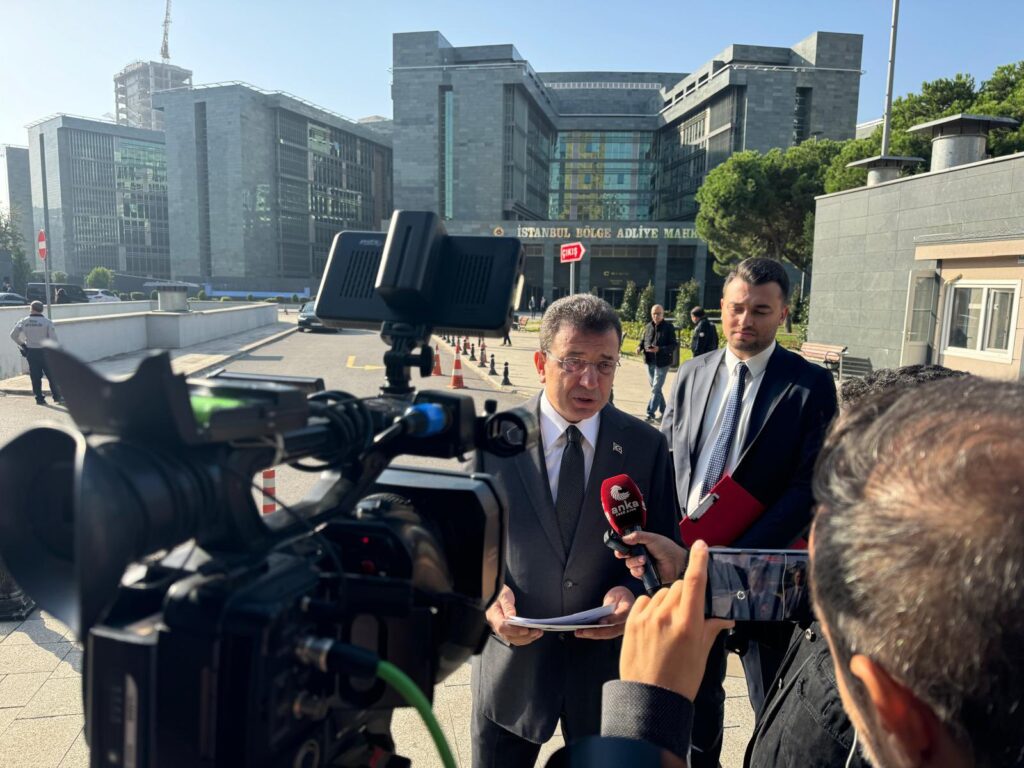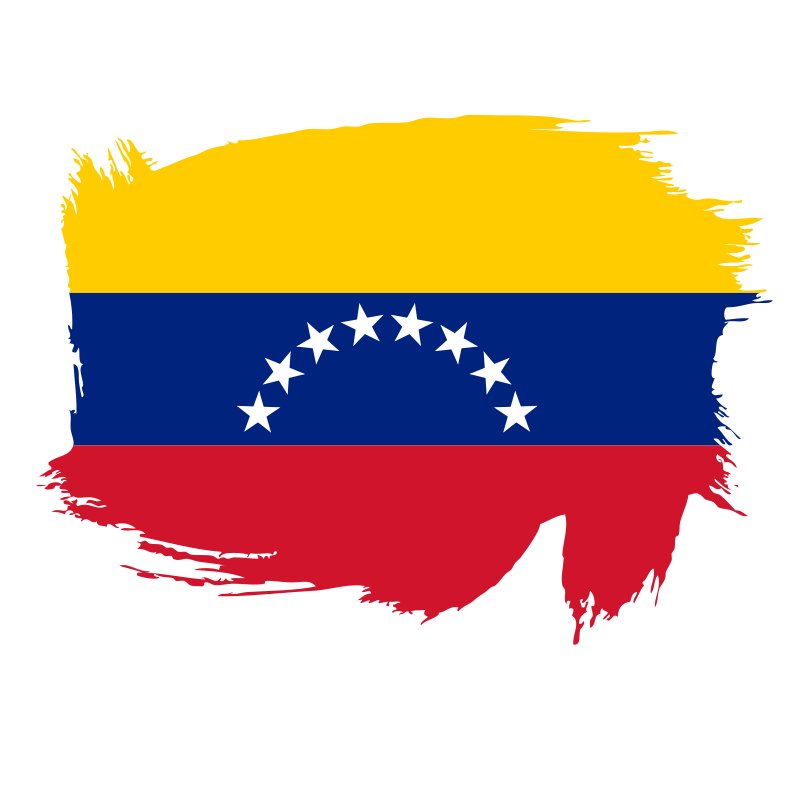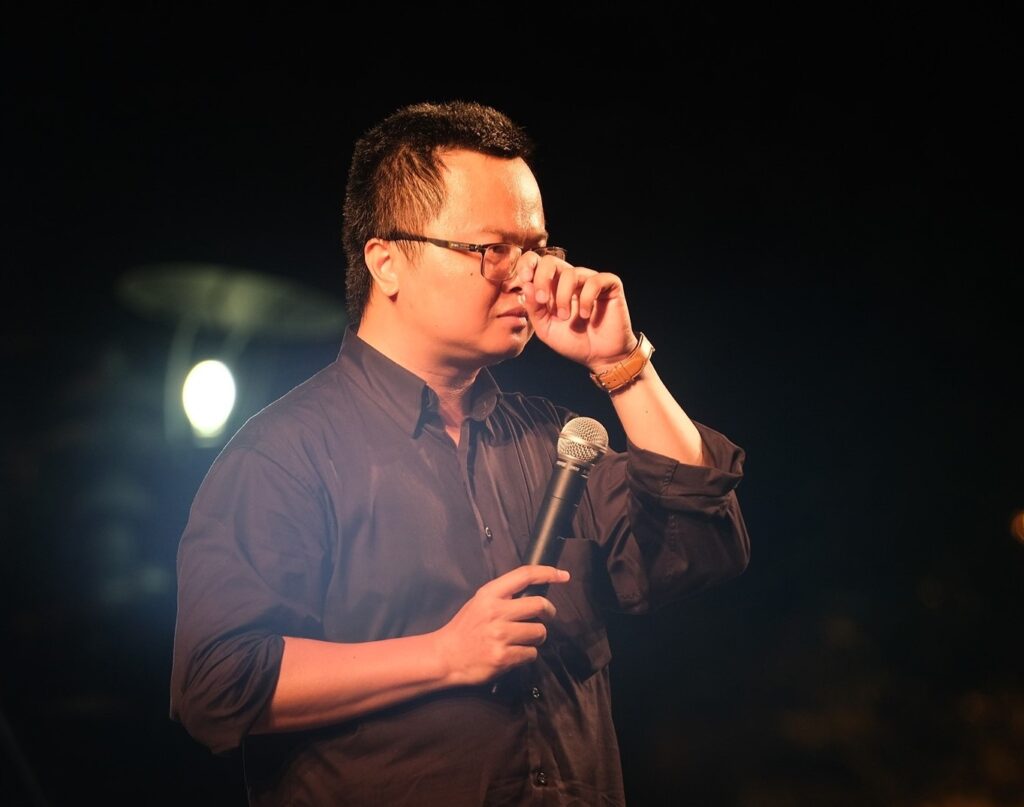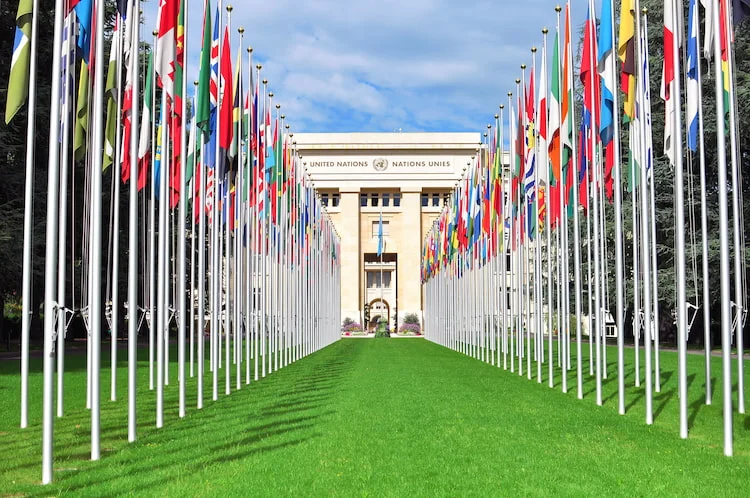The right to a fair trial has long been recognised by the international community as a fundamental human right. Without a fair trial, every individual risks becoming the victim of a miscarriage of justice, either as an innocent suspect wrongly convicted, or as a victim unable to secure justice for a wrong perpetrated against him or her.
In 2021, an annual International Fair Trial Day was established with a steering group, and the event was supported by more than 100 legal associations. The first conference was held as a virtual event on 14 June 2021 with a focus on fair trial rights in Turkey. It was agreed that in each subsequent year a new focus country where fair trial rights are being challenged would be chosen as the focus country. The Steering Group also decided to establish an Ebru Timtik Award, in recognition of her sacrifice for the right to a fair trial. This award will be granted every year to an individual and/or an organisation from the focus country chosen for that year for the International Fair Trial Day or to an individual and/or an organisation who has been active in defending and or promoting the right to a fair trial in that specific country. An International Fair Trial Day Alliance was also formed among prominent bar associations and lawyers’ organisations across the world which support the initiative.
After considering several proposals for the focus country of the 2022 International Fair Trial Day, the Steering Group have now decided that the focus country for this year is Egypt.
The decision is based on the following:
- Judicial independence is severely eroded in Egypt, which means that the right to an independent and impartial tribunal is violated in most, if not all, cases (especially against human rights lawyers, human rights defenders, journalists, and opposition politicians). Reports confirm a wide range of systemic violations of the right to a fair trial in the country, including arbitrary detention, arrests, or prosecutions of opponents or perceived opponents. There also has been a failure to effectively prosecute and punish crimes committed by state-affiliated forces, such as unlawful or arbitrary killings – including extrajudicial killings -, forced disappearances, torture, and cases of cruel, inhuman, or degrading treatment or punishment. Whilst this amounts to a violation of the rights of the victims of these crime and does not of itself amount to a violation of fair trial rights, it is further evidence that the police and prosecutors are failing in their duty to carry out effective and independent investigations and uphold the rule of law so that an atmosphere of impunity in relation to the acts of state-affiliated forces exists.[1] This dire picture is recognised in a number of reports from prominent human rights organisations. The country is classified as ‘not free’ by Freedom House, underlining – under the rule of law ranking – serious fair trial rights issues.[2] Furthermore, the World Justice Project’s 2021 Rule of Law index ranks Egypt at 136 out of 139 countries.[3]
- Reports indicate that the executive branch in Egypt exerts influence over the courts, which typically protect the interests of the government, military, and security apparatus and have often disregarded due process and other basic safeguards in cases against the government’s political opponents or where there is perceived dissent. Constitutional amendments made in 2019 further strengthened the Egyptian President’s supervisory powers over the judiciary and undermined its independence. The changes allowed the President to appoint the heads of judicial bodies and authorities, choosing from among several candidates nominated by their governing councils.[4] The President also serves as the veto-wielding head of the Supreme Council for Judicial Bodies and Authorities, which controls appointments and disciplinary matters for the judiciary. The chief justice of the Supreme Constitutional Court[5] is now chosen by the President from among its most senior members. Since the new provision took effect in June 2019, the Egyptian President has already used it twice to appoint new SCC presidents by decree, in July 2019 and now on February 8, 2022.
- Law no 162 of 1958 (“the Emergency Law”) established the institution of the Emergency State Security Court (ESSC) to adjudicate crimes that violate the terms of a “state of emergency”.⁹ In 2017, the Prime Minister transferred “protesting” and “terrorism-related” offences to the jurisdiction of the ESSC, to which was added crimes from first two chapters of the Penal Code, including those relating to ’spreading fake news’ in January 2021.
- Many detained government critics and opposition figures have been prosecuted by the ESSC since the state of emergency was declared in 2017; the state of emergency has been repeatedly renewed and remained in effect until late 2021. Decisions of the ESSC are not subject to appeal but instead are subject to executive-branch approval, as the President can suspend any of their rulings and order retrials. Although the constitution limited military trials of civilians to crimes directly involving the military, its personnel, or its property, a 2014 presidential decree placed all “public and vital facilities” under military jurisdiction, resulting in the referral of thousands of civilian defendants to military courts. That expansion of jurisdiction was effectively incorporated into the constitution in 2019.[6]
- Additional, restrictive new emergency measures enacted in 2020 were justified as a response to the COVID-19 pandemic. In May 2020, President Sisi approved and signed into law amendments to Emergency Law no. 162 of 1958 that banned all forms of public gatherings and demonstrations and gave police greater powers to make arrests. It further expanded the jurisdiction of the military judicial system over civilians by giving the President the power to authorize the military to investigate and prosecute crimes that violate the Emergency Law. Authorities also used the COVID-19 pandemic to justify skipping renewal hearings for pretrial detention orders. Although the state of emergency has been lifted since October 2021, there are ongoing trials of dozens of arbitrarily detained human rights defenders, activists, opposition politicians and peaceful protesters by emergency courts where proceedings are inherently unfair. [7]
- The extension of military jurisdiction in Egypt is in itself is a violation of the right to a fair trial under the African Charter on Human and Peoples’ Rights and the ICCPR, insofar as the necessity of applying such jurisdiction over civilians is almost never justified. This is in addition to other fair trial rights that are routinely violated in Egyptian courts, including military tribunals, such as the right to access counsel and the right to prepare a defence. The hearings at military tribunals are not open to the public.
- Other abuses of fair trial rights include the use of the Counter-terrorism Law, the Protest Law, the NGO Law, the Media Law, the Cybercrime Law, and the Penal Code to harass, arrest, and prosecute lawyers and human rights defenders, and there are many examples of arrest, detention, death in custody, and enforced disappearance of lawyers and human rights defenders. The mass trials against protesters is another practice raising fair trial rights issues.
- The lack of a fair trial directly affects lawyers and other human rights defenders at risk, many of whom are convicted and sentenced to long prison sentences and sometimes even the death penalty (which is still being imposed and carried out in Egypt). Reports underline an increased use of the death penalty and executions, many handed down following mass trials fundamentally lacking fair trial guarantees. Accordingly, 80 people were executed in only the first 6 months of 2021, ranking Egypt as the third-worst country in numbers of executions worldwide.[8]
- The African Commission on Human and Peoples’ Rights has adopted several resolutions about the situation in Egypt underlining, amongst other issues, the systemic violation of fair trial rights in the country. The calls made to the government, cited below, in a February 2015 resolution provide a strong indication of the seriousness of the issues:
“The Commission:
- Condemns the Arab Republic of Egypt’s disregard to regional and international fair trial standards, the unlawful imposition of mass death sentences, and the persecution of journalists and human rights defenders;
- Calls upon the Government of the Arab Republic of Egypt to comply with the African Charter, the Principles and Guidelines on Fair Trial, the Declaration on Freedom of Expression, and other instruments to which Egypt is a party;
- Urges the Government of the Arab Republic of Egypt to put an end to the harassment, arbitrary arrest, detention and sentencing of journalists, human rights defendants, and individuals who express dissenting views regarding the Government’s actions;
- Strongly urges the Government of the Arab Republic of Egypt to observe an immediate moratorium on the death sentences and to reflect on the possibility of abolishing capital punishment;
- Invites the Government of the Arab Republic of Egypt to ratify the Second Optional Protocol to the International Covenant on Civil and Political Rights aiming at the abolition of the death penalty; and
- Calls on the Government of the Arab Republic of Egypt to investigate all human rights violations perpetrated in the country and prosecute authors of these violations.” [emphasis added][9]
- In an October 2021 decision, the African Commission on Human and Peoples’ Rights concluded that the Emergency Law of Egypt contravened the African Charter on Human and Peoples’ Rights and requested the government to reform domestic laws to prevent recurring human rights violations. Although the decision concerns arrest and detention of an applicant several years ago, the Commission found that the law which is still in force and used as the pretext to justify ongoing systemic violations was not in line with the African Charter.[10]
- In July 2021, UN Expert Mary Lawlor pointed out the ongoing violations in Egypt and highlighted a common trend across multiple cases, whereby human rights defenders are often arrested without a warrant and detained incommunicado at an unknown location and subjected to enforced disappearance, before being presented before the Supreme State Security Prosecution. Their pre-trial detention pending investigation is then ordered for alleged acts criminalized under the vague provisions of the Penal Code, Anti-Terror Law and Anti-Cybercrime Law.[11]
- In January 2022, a statement was issued by 65 human rights organizations, and it was underlined that the fair trial standards are routinely flouted in trials before ESSCs, including the right to adequate defence and rights to a public hearing. Defence lawyers have been prevented from communicating with their clients in private and prevented from photocopying the casefiles, indictments and verdicts.[12]
- Focusing the next International Fair Trial Day on Egypt will help draw more attention to the systemic fair trial violations in the country. It will provide support to many, including lawyers (at least 35 that we know of), human rights defenders, journalists, political opponents or perceived opponents who are still being arbitrarily detained there, often under unacceptable prison conditions and facing trials severely undermining the fair trial principles.
We are writing at this stage to advise you of this initiative and to invite your organisation to support International Fair Trial Day and attend the conference which will be hosted by Palermo Bar Association and held in Palermo, Italy between 17-18 June 2022. Further details of the programme and of the speakers who will address the conference will follow over the next few months. For now, we would ask you to hold the date.
Call for nominations for the Ebru Timtik Award
We also would like to invite you to nominate one or more individual(s) or an organisation for the Ebru Timtik Award among those who have demonstrated outstanding commitment and sacrifice in upholding fundamental values related to the right to a fair trial in Egypt. The individual(s) or organisation nominated for the award must be or have been active in defending and or promoting the right to a fair trial in Egypt through either his/her/its recent outstanding piece of work in relation to this fundamental right or his/her/its distinguished long-term involvement in fair trial issues. The deadline for nominations is 16 May 2022. To nominate, please send your nominations to nominationsetaward@gmail.com and kindly include: (1) the candidate’s detailed bio, (2) a letter signed by the nominating organisation/group of individuals explaining the reasons why they/it consider(s) that the candidate should be granted the Award, and (3) one recommendation/supporting letter from an unrelated, external organisation, if the application is submitted by a group of individuals.
For the details of the award criteria and process please see the “Selection criteria for the grant of the Ebru Timtik Fair Trial Award”. After the deadline, a jury composed of independent individuals who are experienced with the right to a fair trial, including one or more from the focus country, will determine the nominations and reach a decision.
Download the full statement here.
Download the selection criteria for the grant of the Ebru Timtik Fair Trial Award here.
[1] https://www.state.gov/reports/2020-country-reports-on-human-rights-practices/egypt/ and https://www.hrw.org/world-report/2022/country-chapters/egypt
[2] https://freedomhouse.org/country/egypt/freedom-world/2021
[3] https://worldjusticeproject.org/rule-of-law-index/country/2021/Egypt%2C%20Arab%20Rep./; https://worldjusticeproject.org/sites/default/files/documents/WJP-INDEX-21.pdf
[4] https://freedomhouse.org/country/egypt/freedom-world/2021
[5] https://english.ahram.org.eg/NewsContent/1/64/460767/Egypt/Politics-/Sisi-names-first-Christian-as-president-of-Egypt;s.aspx
[6] https://freedomhouse.org/country/egypt/freedom-world/2021
[7] https://www.amnesty.org/en/latest/news/2021/10/egypt-stop-trials-by-emergency-courts/
[8] https://www.hrw.org/world-report/2022/country-chapters/egypt
[9] https://www.achpr.org/sessions/resolutions?id=146
[10] https://www.justiceinitiative.org/uploads/5d96ebd8-1a3e-4bca-afb3-8ed4683896ec/african-commission_el-sharkawi-v.-arab-republic-of-egypt_022021.pdf
[11] https://www.ohchr.org/en/NewsEvents/Pages/DisplayNews.aspx?NewsID=27314&LangID=E
[12] https://www.civicus.org/index.php/media-resources/news/5570-egypt-quash-verdicts-and-stop-unfair-trials-by-emergency-courts
